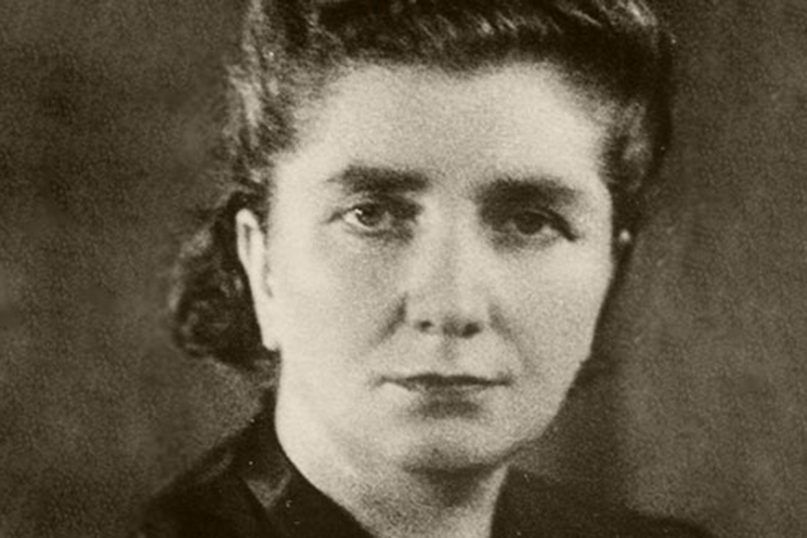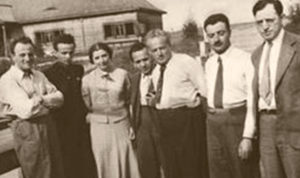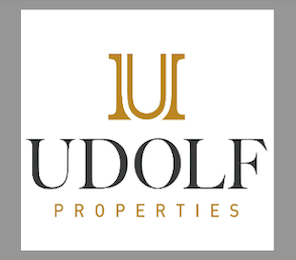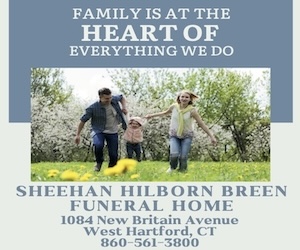
NEW HAVEN – Last January, the film “Who Will Write Our History,” about the Warsaw Ghetto archive, was screened in more than 300 theaters in 55 countries around the world as part of UNESCO’s International Day of Commemoration in Memory of the Victims of the Holocaust.
The film is based on Trinity College Professor Samuel Kassow’s 2007 book Who Will Write Our History? Emanuel Ringelblum, the Warsaw Ghetto and the Oyneg Shabes Archive, which tells the story of the brave group of Jews who gathered information and testimonies about the horror occurring to the more than 450,000 Jews in the Warsaw Ghetto.
Working alongside Emanuel Ringelblum in Oyneg Shabes was Rokhl Oyerbakh, better known by Rachel Auerbach.
Not only did Oyerbakh help collect testimonies from Jews languishing in the ghetto, she also helped uncover the buried archives after the war was over.
But despite her lifelong work to document the stories of Holocaust victims and survivors, few know her story.
Auerbach died of breast cancer at her home in Tel Aviv in 1976. She was 72. But she will finally get her due on Sunday and Monday, Nov. 3-4, when the Fortunoff Video Archive for Holocaust Testimonies at Yale Univeristy hosts “Rokhl Oyerbakh: The Bridge Between Wartime and Postwar Testimony,” the first-ever international symposium dedicated to Oyerbakh and her legacy as a writer, historian, and documentarian.

Jewish writers and academics in Poland, circa 1930. (l to r: Emanuel Ringelblum, Icyk Manger, Rachel Auerbach, Jakub Szacki, Berk Horowc, Rafael Mahler and M. Weinberg.
The conference will feature academics from various institutions including Yale University, the University of Connecticut, Jewish Theological Seminary, Brandeis, University of Wrocław, Tel Aviv University, Heinrich Heine University in Dusseldorf, the University of California and Shaanan College in Haifa.
“The goal of this conference is to shed light on a woman who repeatedly made important intellectual and cultural achievements throughout her life – from the interwar period to the postwar,” says Laura Jockusch, Albert Abramson Assistant Professor of Holocaust Studies at Brandeis University, and a speaker at the November conference. “Oyerbakh and her allies understood the critical need to document the traumatic historic events unfolding in front of her eyes, with the hope that someday, someone would write the history of this great destruction, commemorate the dead, and bring those responsible to justice. Her work then, and her work at the fore of collecting the testimonies of survivors postwar, contributed significantly to our understanding of the survivor experience, and of the history of the Holocaust as a whole.”
“From her work with the the Oyneg Shabes group in the Warsaw ghetto and cooperation with the Polish Historical Commission at the end of World War II, to her pivotal role in the founding of Yad Vashem and defending the right of witnesses to tell their stories in later decades, Rokhl Oyerbakh was among the last century’s pioneers in the collection of Holocaust testimony,” notes Samuel Moyn, Henry R. Luce Professor of Jurisprudence and Professor of History at Yale University. “Often denied her due in her own time, she deserves all the attention this conference gives her now.”
Stephen Naron, director of the Fortunoff Archive, says the idea for the conference began forming after meeting two people with a rich knowledge of Auerbach and her work.
“It all began with two Sams – Samuel Kassow and Samuel Moyn,” Naron explains. “Moyn had written a book about the Treblinka controversy that featured Auerbach as an important protagonist. Having just met Moyn after his arrival at Yale, I read the book. I had already been interested in Auerbach’s role as an oral historian at Yad Vashem (reading Boaz Cohen’s work among other things). But I had no idea about her role in the Treblinka controversy.”
Oyerbakh publicly disputed alleged inaccuracies about the Holocaust in Treblinka, written by Jean-François Steiner in 1967.
Fast forward to a lunch with Sam Kassow, and discussion of Oneg Shabbes and [the] film, which had not yet been released. I floated the idea of a conference, and he liked it.
“Another important inspiration was a conference I attended in Tel Aviv, where [David] Roskies, [Karolina] Szymaniak, [Leora] Bilsky and others had a small Hebrew language workshop where we read pieces by Auerbach, and discussed them,” Naron continued. “My idea, then, was to make a similar event, in English, open to the public – and in fact with many of the same speakers. Auerbach is a complex, brilliant cultural figure, and an inspiration to oral historians and archivists, such as myself, working with Holocaust testimony. I felt that the time was right for her to have an institution, like Yale, convene a conference worthy of her significance.”
Roskies, chair of Yiddish Literature and Culture at JTS; Szymaniak, assistant professor at the Department of Jewish Studies at the University of Warclaw; and Bilsky, director of the Minerva Center for Human Rights in Tel Aviv – all participants in the Tel Aviv workshop that inspired Naron – will be members of panels at the Yale conference.
Kassow, Charles H. Northam Professor of History at Trinity College, will give the keynote address at the conference – “‘We Fulfilled Our Mission’”: The Legacy of Rokhl Oyerbakh,” on Monday, Nov. 4.
“She’s been very overlooked; she has been totally forgotten,” said Kassow. “Very little that she wrote has been translated into English. She was one of only three survivors of the Ringelblum archive. After the war, she dedicated her life to making sure that the story of the survivors was told. She dedicated her life to protecting Ringelblum’s memory.”
A lifelong love of Yiddish
Born in 1903 in a village called Lanowitz in Poland, now part of Ukraine, Oyerbakh studied psychology and philosophy at Lwow University. She had a lifelong love of Yiddish and wrote for the Yiddish journal Tsushtayer. When she moved to Warsaw in 1933, she began writing for the Polish-language Jewish newspaper Nasz Przegląd and in the Yiddish press.
At the request of Ringelblum, who was serving as a relief worker in Warsaw in 1939, Oyerbakh helped organize soup kitchens, joining Oyneg Shabes two years later.
“Oyneg Shabes” (Joyful Shabbat) was the codename for Emanuel Ringelblum’s organization. Scholars, journalists and community leaders buried testimonies, documents, photographs, and other materials in metal boxes and milk cans beneath the ruins of the Warsaw Ghetto for safekeeping. While a member of Oyneg Shabes, Oyerbakh wrote essays, took testimonies, and kept a diary written in Polish.
One of only three of the group’s 60 members to survive, Auerbach helped to find the Archive after the war. After moving to Israel in 1950, she worked at Yad Vashem, where she served as founder and director of the Department for the Collection of Witness Testimony, documenting first-person accounts of victims’ experiences.
Today, the archives from the Warsaw Ghetto are housed at the Jewish Historical Institute in Warsaw.
She also curated survivor testimony for the trial of Adolf Eichmann, the Nazi officer captured in Argentina by the Mossad and executed in Israel for war crimes in 1962.
“She played a very big role behind the scenes of the Eichmann trial,” said Kassow. “She underscored the importance of hearing the testimony of the victims, that that itself is very important. She kept underscoring the importance of victims’ testimony to prosecutor Gideon Hausner, that unlike the Nuremburg trials which was based on documents, that this should be a trial based on victim testimony and a trial that would be didactic – uncover the entire range of the Holocaust, but focusing not so much on Eichmann the perpetrator on a very micro level, but focusing on the experience of the victims.”
For more information about the conference “Rokhl Oyerbakh: The Bridge Between Wartime and Postwar Testimony,” at Yale, visit: https://fortunoff.library.yale.edu/events/rokhl/.
Main Photo: Rachel Auerbach








 Southern New England Jewish Ledger
Southern New England Jewish Ledger







